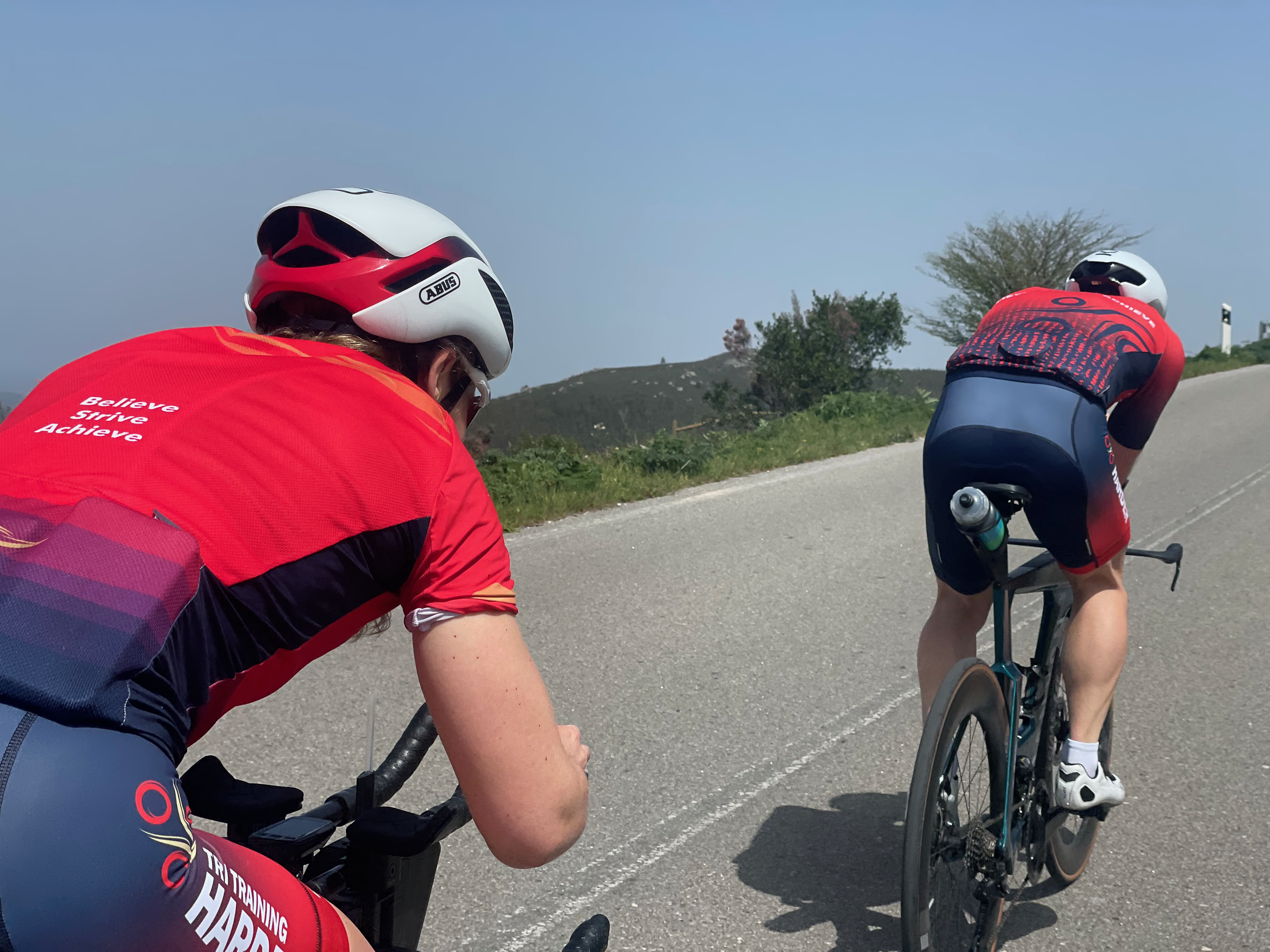How to deal with decisions that go against you in endurance sport
Any sport has a set of rules. As the English cricketers discovered in this year's Ashes, the rules are the rules. The spirit of the rules is something different. As an athlete, our aim is always to compete within the rules. However, most of the time, the rules are in place for safety and fair play. Inevitably, if you want to push the boundary of what is possible, you must move closer to the limit of the rules. This article explored how we can respond to moments where the rules are applied to us!
Any sport has a set of rules. As the English cricketers discovered in this year's Ashes, the rules are the rules. The spirit of the rules is something different. As an athlete, our aim is always to compete within the rules. However, most of the time, the rules are in place for safety and fair play. Inevitably, if you want to push the boundary of what is possible, you must move closer to the limit of the rules. This article explored how we can respond to moments where the rules are applied to us!
The contract between athletes and the rule enforcers (referees) is always one of respect; both will do their role professionally and trust the other is doing the same. Inevitably, with the speed at which sport is played, errors may be made, and there may be a gap between what an athlete believes is the truth and what a referee saw! Lionel Sander's penalty for crossing the imaginary line evokes anger (he has been clear that he is stating facts, so the offence is felt more by the fans of the sport!): firstly, how can you enforce a clear rule in a fictional scenario? Secondly, can you ensure these rules are consistent across the board? In other sports like tennis, rugby and football, we use VAR and computers to aid the human eyeball to make the correct decision. In the interest of fairness, any grey areas are tried to be made less grey. This article is not going to focus on the greyness of decisions. We agree that sometimes referees make mistakes that hindsight (or a VAR) may over-turn, but how do you manage this?
Rugby serves as an excellent example of good behaviour around decisions enforced on the athlete, and with the World Cup starting in a few days, it is a topical sport to engage with. Again, the referee's role is to enforce rules created chiefly for safety and fairness. Importantly, though, in many instances, the referee enforces their interpretation of the rules. Sportspeople are notorious for trying to get as much out of the rules as possible. Let's think about drafting in a triathlon bike section. The risk of getting a drafting penalty by going 12.001m behind the rider in front of you is higher as there is less buffer should either of you change speed. Still, the reward is worth getting as close to that value as possible to obtain some advantage and improve your performance.
Realistically, neither you nor the referee can accurately measure the distance without a form of computer or sensor (which is on the way). Therefore, both of you are interpreting the rules. In rugby, the referee will often call players up quickly on infringements to ensure athletes are entirely aware of how the rules will be enforced for the rest of the game. The rugby player's immediate behaviour of respect and acceptance is something triathletes would do well to learn from. Another way to consider this is about recalibrating yourself.
If we think of an interaction with the referee as a re-calibration of your understanding of the rules, it makes the experience much more positive. Discussions can often come along with penalties. Athletes would be wise to remember that there is very little chance that telling the referee that they are wrong will overturn any decision the referee has already made! Most athletes don't have the benefit of a VAR or video to prove their point, so there is little benefit in arguing your perspective. Instead, recognise that your expectations have been recalibrated.
What does this mean to your race? Penalties in triathlon can be quite limiting, especially at the front of the race. However, most penalties, especially in long-distance racing, may have a negligible impact on most age-groupers' races. At the sharper end of any race, the effect is more significant. Still, even then, you can reduce its impact by accepting the referee's insight, recalibrating your understanding of the rules, and looking forward.
Most time-based or stop-and-go penalties at a penalty tent are frustrating, but they allow you a chance to reset and think forward. Your race plan may not be the same as pre-penalty, but you can use the time to take some deep breaths and try to review the race and make a plan from now on. A good metaphor for this is swimming in rough seas. In rough seas, you may be swimming front crawl to a buoy. Swimming and sighting are hard work, and it is even harder to be sure exactly where you are going in rough seas. If you tread water for half a minute, you will have a clearer view of where you are going, and you can start making headway with a much more precise purpose and direction.
Seeing these penalties as a chance to reset, re-orientate, and re-plan often means you feel you don't have long enough! The race will go on ahead of you, but a handful of minutes used usefully will likely result in a better course of action after you have served your time. If you take the other available option, you can allow your emotions to take over. You will display these emotions, argue, and make a rash decision immediately after the penalty is served. Additionally, in most instances, you can discuss your case at the finish line with the head referee. Any over-turned decision would happen retrospectively and only after the race is finished. If you have served a 5-minute penalty but lost an additional 10 minutes through emotional responses, you may be able to argue back the 5 minutes but not the additional ten you chose to lose yourself. As the race gets longer in duration, we also know that nothing is for sure. Five minutes separated the top 5 athletes in the men's 70.3 world championship event, and 10 minutes spanned from 1st-18th; and 5 minutes separated the top 4 females and 10 mins, the top 8 females. So we can see how penalties will affect your race result. However, any extra time will only penalise you unnecessarily. If you have half a chance of retrospectively changing the ban, it is worth racing to the line and using even the penalty to reset your race plan and do your best.
Finally, for most of us, a race goes beyond just the result (though that matters). For many of us, it is also more about the months of training and the process of constant improvement. It is pretty easy to knock off 5 minutes off your time to see what your time could have been without a penalty! However, if you get distracted by emotions with a penalty, you find it much harder to see and understand what worked well and what didn't, so you lose one of the precious moments of practising and learning from an attempt.
Therefore, in summary, understand that referees are there to interpret and apply the rules to you. You can learn from their interpretation, recalibrate and use the conversation positively. If you do this, you are more likely to learn from the experience, and afterwards, you should be able to identify how you can make further improvements in the next race. If your race does depend on outcomes, like those at the front of the race, then the stakes are higher. Nevertheless, keeping a cool head, accepting the situation and looking forward may mean the race is worth fighting for.

Philip is the founder of Tri Training Harder LLP. He’s a British Triathlon Level 3 coach, and has been coaching for over a decade and is involved with mentoring and developing other coaches.
Philip has have coached athletes to European and World AG wins, elite racing, many Kona qualifications, IRONMAN podiums and AG wins.
Alongside the conventional development through many CPD courses, he has also been fortunate enough to work alongside experts in the fields of Physiotherapy, Strength and Conditioning, Nutrition, Psychology, Biomechanics, Sports Medicine. Putting this knowledge into practice he has worked with thousands of athletes to various degrees, from training camps in Portugal and around Europe, clinics in the UK and online coaching.
Visit Philip's
Coach profile
We’re here to help
Tri Training Harder are one of the leading Triathlon coaching providers in the UK, using our wealth of experience to unite scientific and technological research with already well-established and successful best practices, to create a formula for triathlon and endurance coaching that works.
The result is an honest, dynamic, yet simple new way of constructing an athlete’s training to allow them to reach their potential.
If you’re planning your next season, just starting out in the sport or are looking for extra guidance at the very top end of the field, we are here to help, and our coaches would be delighted to hear from you. You can contact us via the website, and one of the team will be in touch.

